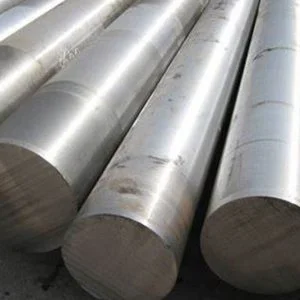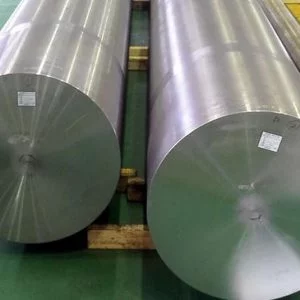Introduction

In the manufacturing and engineering sectors, the selection of materials can significantly impact the quality, durability, and efficiency of products. M2 tool steel is a high-speed steel that has gained prominence due to its superior hardness, wear resistance, and ability to maintain cutting edges at high temperatures. This blog explores the top applications of M2 tool steel in manufacturing and engineering, highlighting its properties, benefits, and role in various industries.
What is M2 Tool Steel?
M2 tool steel is a high-speed steel (HSS) that is commonly used in the manufacturing of cutting tools and machinery components. It is known for its excellent combination of hardness, toughness, and wear resistance. M2 tool steel is alloyed with tungsten, molybdenum, and chromium, which contribute to its high performance in demanding applications.
Key Properties of M2 Tool Steel
| Property | Description | Benefits |
|---|---|---|
| Hardness | Can be hardened to approximately 62-64 HRC | Provides excellent wear resistance |
| Wear Resistance | High resistance to abrasion and erosion | Extends tool life and maintains sharpness |
| High-Temperature Stability | Maintains hardness at elevated temperatures | Suitable for high-speed cutting operations |
| Toughness | Good toughness to resist chipping and cracking | Enhances durability and longevity of tools |
| Machinability | Relatively good machinability compared to other HSS | Allows for precise manufacturing |
Applications of M2 Tool Steel
Cutting Tools
M2 tool steel is extensively used in the manufacturing of cutting tools, including drills, end mills, and taps. Its ability to maintain a sharp cutting edge and withstand high temperatures makes it ideal for these applications.
Cutting Tools Comparison:
| Tool Type | M2 Tool Steel | Other Tool Steels | Key Advantages |
|---|---|---|---|
| Drills | High-speed cutting capability | Lower speed, less durability | Longer tool life, better performance at high speeds |
| End Mills | Superior hardness and wear resistance | Less wear-resistant | Enhanced cutting precision and durability |
| Taps | Maintains sharpness under high temperatures | Prone to wear and deformation | Improved threading accuracy and tool life |
Dies and Molds
M2 steel is used for manufacturing dies and molds due to its excellent wear resistance and ability to retain sharp edges. It is particularly effective in high-volume production environments where durability is crucial.
Die and Mold Applications:
| Application | M2 Tool Steel | Alternative Materials | Benefits |
|---|---|---|---|
| Injection Molds | High wear resistance | P20 steel, aluminum | Longer mold life, better surface finish |
| Stamping Dies | High-temperature stability | Alloy steels | Enhanced performance under heavy loads |
| Compression Molds | Toughness and hardness | Plastic molds | Improved resistance to wear and deformation |
Aerospace Components
In the aerospace industry, M2 steel is used for components that require high precision and resistance to extreme conditions. Its properties make it suitable for manufacturing critical parts like turbine blades and aircraft landing gear.
Aerospace Components Comparison:
| Component | M2 Tool Steel | Alternative Materials | Advantages |
|---|---|---|---|
| Turbine Blades | High-speed cutting capability | Nickel-based alloys | Excellent performance in high-temperature environments |
| Landing Gear Components | Toughness and hardness | Stainless steel | Improved strength and durability |
| Structural Components | Wear resistance | Titanium alloys | Enhanced reliability and performance |
Automotive Parts
M2 tool steel is utilized in the automotive industry for manufacturing parts that undergo significant stress and wear. Components such as gears, shafts, and camshafts benefit from M2 steel’s durability and strength.
Automotive Parts Comparison:
| Part Type | M2 Tool Steel | Alternative Materials | Key Benefits |
|---|---|---|---|
| Gears | Wear resistance and toughness | Case-hardened steel | Longer gear life, better performance |
| Shafts | High hardness and strength | Alloy steels | Enhanced strength and durability |
| Camshafts | High-temperature stability | Forged steel | Improved reliability and performance |
Precision Instruments
For precision instruments that require high accuracy and durability, M2 steel is an excellent choice. It is used in the manufacturing of measuring tools, gauges, and other precision equipment.
Precision Instruments Comparison:
| Instrument Type | M2 Tool Steel | Alternative Materials | Advantages |
|---|---|---|---|
| Measuring Tools | High wear resistance | Tool steels, ceramics | Increased accuracy and longevity |
| Gauges | Toughness and hardness | Stainless steel | Enhanced durability and performance |
| Cutting Instruments | High-speed performance | High-carbon steels | Better precision and tool life |
Metalworking Machinery
M2 steel is used in various metalworking machinery components, such as cutting blades and punches. Its high hardness and wear resistance contribute to efficient and precise metalworking processes.
Metalworking Machinery Comparison:
| Machinery Type | M2 Tool Steel | Other Tool Steels | Benefits |
|---|---|---|---|
| Cutting Blades | High-speed cutting capability | Carbon steels | Extended blade life, better cutting efficiency |
| Punches | Wear resistance and toughness | Alloy steels | Improved performance and tool life |
| Milling Tools | High hardness | High-speed steels | Enhanced metal removal and surface finish |
Medical Instruments
M2 tool steel is also used in the medical industry for manufacturing surgical instruments and diagnostic tools. Its properties ensure the precision and reliability required in medical applications.
Medical Instruments Comparison:
| Instrument Type | M2 Tool Steel | Alternative Materials | Key Advantages |
|---|---|---|---|
| Surgical Instruments | High hardness and durability | Stainless steel | Improved sharpness and tool longevity |
| Diagnostic Tools | Wear resistance | High-carbon steels | Enhanced accuracy and performance |
| Surgical Blades | Toughness and sharpness | Ceramics | Better cutting efficiency and tool life |
Advantages of M2 Tool Steel in Manufacturing and Engineering

Superior Hardness
M2 tool steel’s high hardness makes it suitable for cutting and shaping tough materials. This property is essential for tools and components that require precise and durable edges.
Excellent Wear Resistance
The wear resistance of M2 steel extends the life of tools and components, reducing the need for frequent replacements and maintenance.
High-Temperature Performance
M2 tool steel retains its hardness and performance even at elevated temperatures, making it ideal for high-speed cutting operations and applications involving heat.
Good Toughness
The toughness of M2 steel helps resist chipping and cracking, ensuring reliable performance and longevity in demanding applications.
Conclusion
M2 tool steel is a versatile and high-performance material that plays a crucial role in manufacturing and engineering. Its superior hardness, wear resistance, and high-temperature stability make it an excellent choice for a wide range of applications, including cutting tools, dies, aerospace components, automotive parts, precision instruments, metalworking machinery, and medical tools. By understanding the applications and advantages of M2 steel, manufacturers and engineers can make informed decisions and optimize their production processes.
FAQ
Q:What makes M2 tool steel suitable for high-speed cutting tools?
A:M2 tool steel’s high hardness and ability to retain sharp edges at elevated temperatures make it ideal for high-speed cutting tools, allowing for efficient and precise material removal.
Q:How does M2 steel compare to other tool steels?
A:Compared to other tool steels, M2 offers superior hardness and wear resistance while maintaining good toughness and high-temperature performance. This combination makes it a versatile choice for various applications.
Q:What are the common applications of M2 tool steel in the aerospace industry?
A:In the aerospace industry, M2 tool steel is used for components such as turbine blades and landing gear, where high precision, durability, and performance under extreme conditions are required.
Q:Can M2 steel be used for medical instruments?
A:Yes, M2 steel is used in the medical industry for surgical instruments and diagnostic tools due to its hardness, wear resistance, and ability to maintain sharpness.
Q:What are the benefits of using M2 tool steel in automotive parts?
A:In automotive parts, M2 tool steel provides enhanced strength, wear resistance, and durability, leading to longer tool life and improved performance in components such as gears, shafts, and camshafts.
